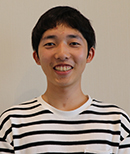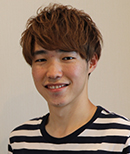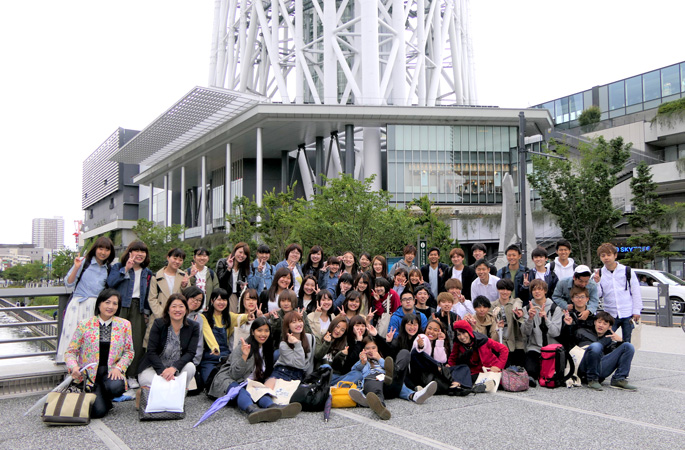Students from Faculty of Global Studies learn about "omotenashi" through field work - promoting the appeal of Sumida Ward to the world through social media
Faculty of Global Studies
July 13, 2018
On Saturday, June 16th, students enrolled in Faculty of Global Studies' regular course "Hospitality" (taught by Professor Miyazaki Midori, Faculty of Global Studies) conducted fieldwork in Sumida Ward.
In the run-up to the 2020 Tokyo Olympic and Paralympic Games, the question of how to prepare to welcome the world has become a social issue. In "Hospitality," which considers "entertaining the world" from an academic perspective, we do not simply consider "omotenashi" as a way of serving customers, but rather explore the Japanese culture, values, and history that underlie omotenashi. Therefore, in order for students in this course to understand and practice "what is omotenashi" at an individual level, they participated in fieldwork to rediscover and promote the appeal of Sumida Ward, which is becoming increasingly popular as a tourist destination in Tokyo, where the Olympics will be held.
On the day of the fieldwork, Ms. Ikuko Moriyama, Chairman of the Board of the Sumida Tourism Association, gave a special lecture on the history of Sumida Ward and activities to make Sumida Ward an attractive town for young people and foreigners. In the lecture, Chairman of the Board Moriyama said, "We would like to utilize the perspectives that you have gained from the fieldwork to communicate the charms of Sumida Ward to young people."
The fieldwork was carried out in groups in areas such as Mukojima, Azumabashi, Oshiage, Ryogoku, and Kinshicho. Each group was assigned a theme such as "Retro Modern," "Feeling History," or "Chomei-ji Sakuramochi Survey." They walked around Sumida Ward with maps and pamphlets in hand, and made many discoveries, including how to promote the unique charm of a town where the old and new coexist from the perspective of "hospitality." After the fieldwork was completed, each group gave a presentation on the charms of Sumida Ward from the students' perspective. They also posted on Instagram using a common hashtag, receiving many "likes." By sharing the information they gained from the fieldwork and the charms they discovered with the world, they contributed to the branding of Sumida Ward.
Through this fieldwork, we learned to discover and consider local resources and practice hospitality that utilizes them.
Student Voices

I wanted to convey the charm of Japan to foreigners, so I took the "Hospitality" course to learn about "Omotenashi". During the fieldwork, I visited Chomyoji Temple in Mukojima and researched Sakuramochi, which has a 300-year history. I spoke to the shop staff about Chomyoji Temple, the history of Sakuramochi, and how it is made. In the group presentation, the theme was "Feel 300 years of history for 300 yen (the price of Sakuramochi and Sencha)", and the participants spoke enthusiastically about what they had heard and their impressions of actually eating Sakuramochi, which sparked interest among everyone. Through this fieldwork, I realized that good things that have lasted for a long time are not well known among foreigners and young people. I think that the first step in "Omotenashi" is to find a way to convey information to more people, so I would like to think further about how I can convey it myself.
Hiroki Miyahara, 1st year Faculty of Global Studies (Mimomi High School)

As I am an active member of a local Japanese drum team, I wanted to learn more about Japanese culture through fieldwork and other activities, so I took the "Hospitality" course. The fieldwork started at Chomyoji Temple in Mukojima, and on the way to the Skytree, I was impressed by the mixture of areas undergoing redevelopment, areas that were not well-maintained, new things, and old things. There was a big difference between well-known places and less well-known places, and I felt that the charm of this area was not being fully conveyed. I believe that by getting to know Japanese culture deeply, not only foreigners but also Japanese people can convey the charm of the area and lead to hospitality, so I would like to contribute to activities to promote Japanese culture.
Ibuki Saruta, 1st year student Faculty of Global Studies (Shinozaki High School)

I chose the "Hospitality" class because I wanted to learn more about Japan as a Japanese person and how to communicate that to foreigners. Our group visited coffee shops in the Kyojima area under the theme of "Visiting Coffee Shops." There was a mixture of old and new shops in the city, such as traditional coffee shops and cafes with pop interiors that are Instagram-worthy, and there were customers of a wide range of ages, from high school students to seniors. When posting information on Instagram, I thought about who I wanted to reach and what words they would search for, and posted photos with hashtags. There were more responses than usual, and I'm glad that people of my generation and foreigners were able to learn about the local culture of Sumida Ward.
Haruhi Nagashimada, first-year student Faculty of Global Studies (graduated from Adachi Shinden High School)